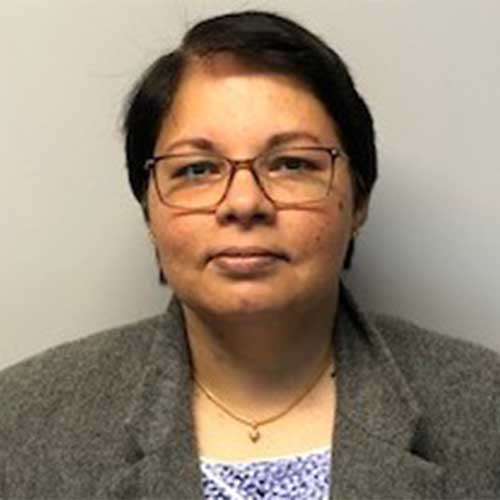Day One: Tuesday, November 14, 2023
10:30 EST
15 minWelcome and Opening Remarks from the Chair
Marc Y. Tassé, Departmental Audit Committee, Public Safety Canada
10:45 EST
60 minCASE STUDY: Leveraging Data Mining for Effective Internal Controls
Brian McKenna, Manager Analysis and Liaison, Treasury Board of Canada Secretariat
- Identify anomalies and irregularities in large datasets to detect potential fraud, errors, or deviations from established internal controls
- Analyze patterns, trends, and outliers within the data
- Leverage historical data to build predictive models that forecast potential risks or control weaknesses
- Facilitate continuous monitoring of internal controls by automating the analysis of large volumes of data in real-time
- Perform in-depth root cause analysis to understand the underlying factors contributing to control failures
11:45 EST
60 minThe Art of Deceit: Uncovering the Exploits of a Master Disability Fraudster
Beatrice Harrietha, Manager, Fraud Risk Management, Sun Life Financial
This case revolves around a fraudster that created a false business. Then purchased a medical insurance plan for the business. Then created false employee profiles
Then impersonated those employees. Then submitted fake claims and went to great lengths to conceal his identity and the fraud
12:45 EST
45 minBreak
13:30 EST
60 minMaking Sense of AI and Internal Controls
Adewale (Wale) Ashaye, IT Audit, Assurance, Information Security & SOC Audit, BDO Canada
14:30 EST
60 minIntegrated Risk Management
Purnima Pandit, Manager, Internal Controls, The Ottawa Hospital
Coordination and collaboration across The Three Lines when managing risks across the organization, including risk interrelationships and dependencies. Benefits include risk awareness, efficiencies, cost savings, timely decision making etc. Challenges include continuous support from executives, frequent regulatory changes, ease of standardization etc.
15:30 EST
60 minLeveraging SOC Reports for Comprehensive Internal Controls
- Employe SOC reports as a foundational resource for establishing comprehensive internal controls
- Verify the effectiveness of internal controls through the examination and validation of SOC reports
- Ensure internal control strategies are closely aligned with the insights derived from SOC reports
- Continuously improve internal controls based on the feedback and recommendations outlined in SOC reports
- Adjust internal control frameworks in response to emerging threats and vulnerabilities identified in SOC reports
16:30 EST
Closing Remarks from the Chair
Marc Y. Tassé, Departmental Audit Committee, Public Safety Canada
Day Two: Wednesday, November 15, 2023
10:30 EST
minWelcome and Opening Remarks from the Chair
Marc Y. Tassé, Departmental Audit Committee, Public Safety Canada
10:30 EST
60 minNavigating the Implications of Ethics in the Future of Internal Controls in Public Sector Organizations
Marc Y. Tassé, Departmental Audit Committee, Public Safety Canada
- Emergence of New Ethical Challenges: Addressing the evolving ethical dilemmas in the public sector due to technological advancements, like data privacy and AI ethics, and their impact on internal controls
- Integration of Ethics in Internal Controls: Emphasizing the crucial role of internal controls in upholding ethical standards, including developing and implementing policies and procedures to ensure integrity and accountability
- Technological Advancements and Risks: Exploring how new technologies are transforming internal controls, offering improved transparency and efficiency, while also introducing new ethical risks and considerations
- Future Trends and Stakeholder Engagement: Discussing predictions for future trends in ethics and internal controls, and stressing the importance of engaging stakeholders in developing and upholding ethical practices in public sector organizations
11:30 EST
60 minBringing Controls Up Front: Enhancing Internal Controls to Prevent Fraud, Waste & Abuse in the Public Sector
Pavithra Chandramouli, Senior Manager, Financial Advisory, Deloitte
- Understand the current state of Program Integrity (Fraud Waste & Abuse prevention) in the Canadian Public sector
- Conduct fraud risk assessments to map controls to fraud risks
- Consider the value of prevention vs detection and investigations
- Improve controls by embedding them in business processes and the citizen lifecycle
- Build a feedback look to understand controls performance and continuously improve fraud prevention
12:30 EST
45 minBreak
13:15 EST
60 minThe Future of Internal Controls: Our Journey to Automation
- Understand what the future of controls testing entails including the art of the possible
- Determine how the organization can begin its automation journey
- Review and understand the benefits in modernizing the three lines of defense
- Consider the benefits of implementing a GRC platform for internal controls and beyond
- Proactively engage stakeholders and buy-in to the automation journey
14:15 EST
60 minResilient Financial Controls: Augmenting Monitoring Programs for Enhanced Risk Management
Sean Hall, Senior Manager, Enterprise Risk & Internal Audit, EY
- Develop a risk-based monitoring program that focuses resources on high-risk areas and activities
- Conduct a comprehensive risk assessment to identify and prioritize potential risks, and allocate monitoring efforts accordingly
- Conduct independent testing and audits of internal controls to validate their effectiveness
- Establish robust reporting mechanisms to communicate monitoring results to management and relevant stakeholders
15:15 EST
60 minImplementing Data Analytics to Strengthen Internal Controls in the Public Sector
- Understand the importance and benefits of implementing data analytics
- Design and implement a data analytics program to strengthen internal controls
- Identify tips and challenges in implementing data analytics
- Highlight examples of data analytics tests that can be implemented
- Explore how data analytics be implemented using the three lines model
16:15 EST
Closing Remarks from the Chair
Marc Y. Tassé, Departmental Audit Committee, Public Safety Canada










